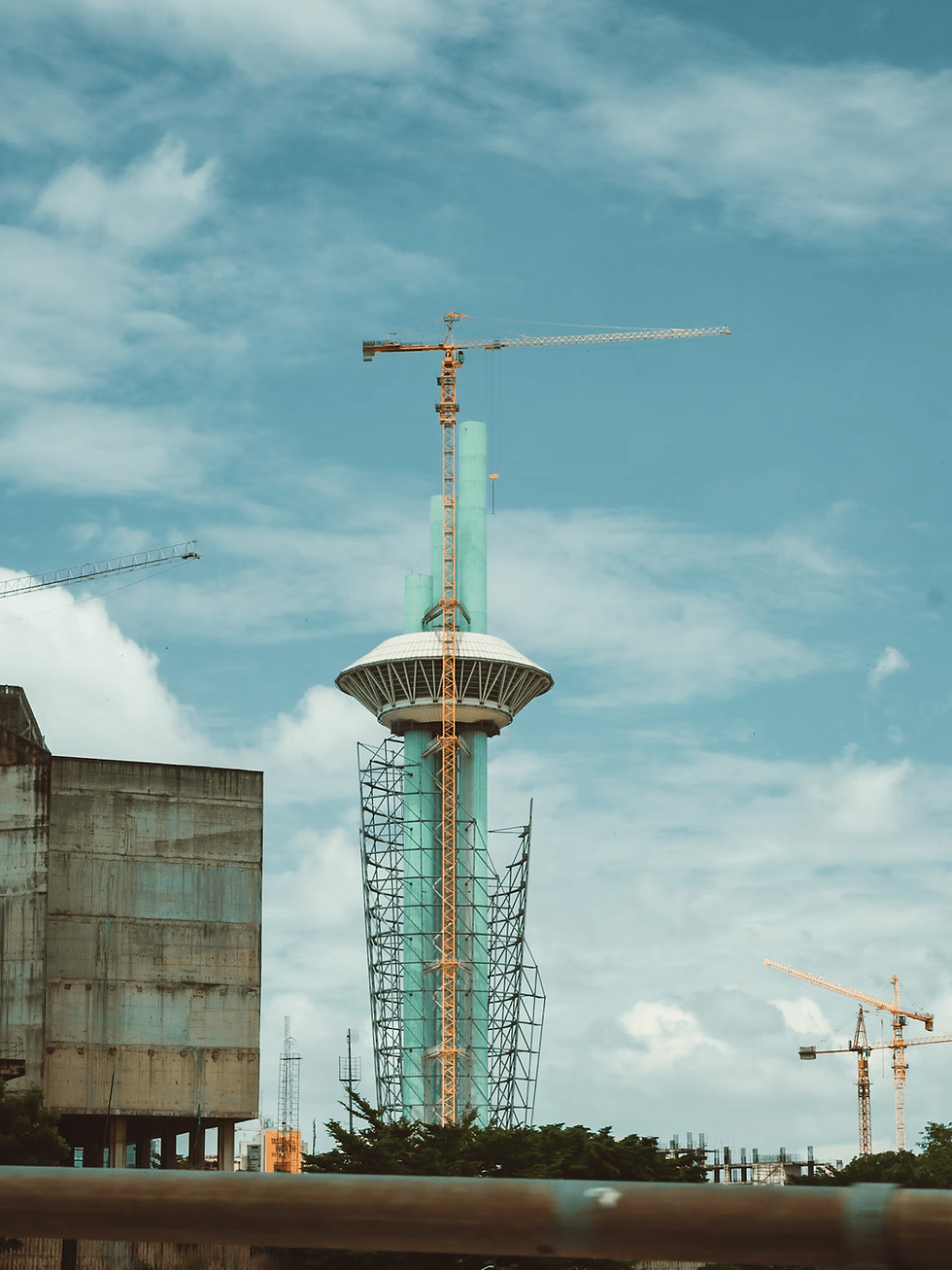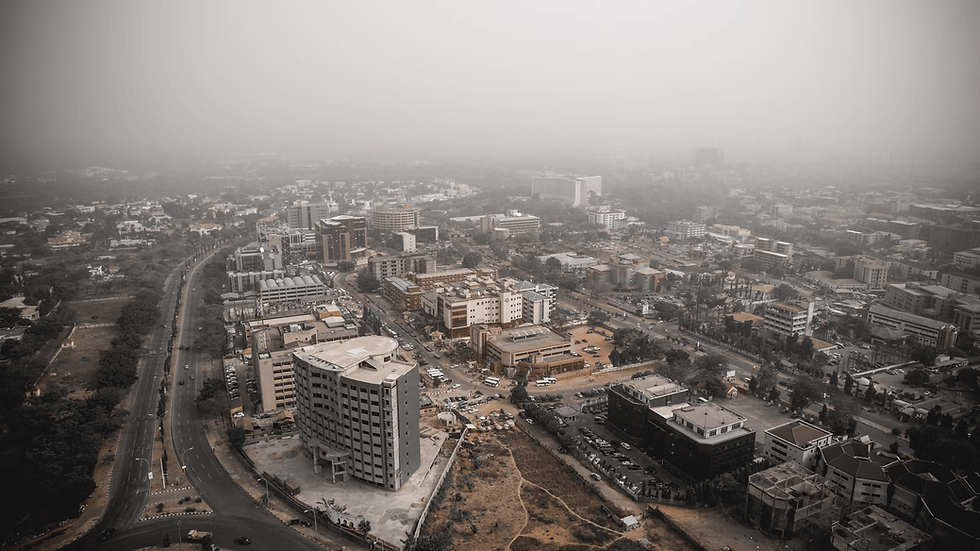Why Abuja, Nigeria Is a Great City to Live In: A Comprehensive Guide
- wobofame
- Jun 14, 2025
- 3 min read
Introduction
Abuja, the capital city of Nigeria, is one of the fastest-developing urban centers in Africa. Known for its organized layout, modern infrastructure, and political significance, Abuja has emerged as a top destination for residents seeking a blend of opportunity, safety, and lifestyle. Whether you’re a local professional, returning diaspora, foreign diplomat, or investor, Abuja offers a conducive environment for living, working, and raising a family.
1. Urban Planning & Infrastructure
✅ Well-Planned City Layout
Unlike many Nigerian cities, Abuja was purpose-built as a capital city in the 1980s and boasts:
Wide roads and expressways
Segmented districts (residential, commercial, governmental)
Minimal congestion compared to Lagos
✅ Modern Infrastructure
Reliable power supply (relatively better than other cities)
Good drainage systems
Access to clean water (especially in central districts)
Modern buildings, malls, and residential estates
✅ Developing Smart City Initiatives
Projects like the Abuja Smart City Master Plan are pushing digital infrastructure and green energy.
2. Security & Stability
✅ Relatively Safer Than Other Major Cities
As the seat of the Federal Government, Abuja is heavily policed and militarized.
Presence of key security agencies such as:
The Nigerian Police Headquarters
The Department of State Services (DSS)
Nigerian Army and Air Force bases
✅ Secure Residential Zones
Diplomatic zones like Asokoro and Maitama offer gated communities, 24/7 private security, and surveillance systems.
3. Quality of Life & Lifestyle
✅ Scenic Environment
Abuja is surrounded by hills and green landscapes like Aso Rock, Zuma Rock, and Gurara Falls.
Natural beauty and fresh air make it ideal for hiking, outdoor fitness, and relaxation.
✅ Luxury & Affordable Housing Options
Luxury: Maitama, Asokoro, Wuse 2
Mid-Range: Gwarinpa, Jabi, Lokogoma
Affordable: Kuje, Kubwa, Bwari
✅ Dining, Shopping & Recreation
Restaurants serving Nigerian, continental, and Asian cuisine
Shopping malls (Jabi Lake Mall, Ceddi Plaza)
Cinemas, lounges, clubs, and golf courses
✅ Green Spaces & Parks
Millennium Park
Jabi Lake
Central Park
4. Career, Business & Investment Opportunities
✅ Political and Diplomatic Capital
Home to embassies, international NGOs, and federal ministries
Numerous government contracts and employment opportunities
✅ Real Estate Growth
Consistent demand for residential and commercial property
Growing middle class and private sector interest
✅ Business Environment
Relatively less chaotic than Lagos for entrepreneurs
Access to FCT grants, real estate ventures, and SME support
5. Education & Health Care
✅ Top Educational Institutions
International Community School (ICS)
American International School of Abuja (AISA)
Loyola Jesuit College
Nile University of Nigeria
British Nigerian Academy
✅ Reliable Healthcare Facilities
National Hospital Abuja
Nizamiye Hospital
Cedarcrest Hospital
Primus International Super Specialty Hospital
6. Connectivity & Transportation
✅ Strategic Central Location
Located at the center of Nigeria, easily accessible from all regions
✅ Nnamdi Azikiwe International Airport
Direct flights to major Nigerian cities and international destinations
✅ Growing Public Transport Network
BRT-like buses and ride-hailing services (Bolt, Uber, InDriver)
Plans for a light rail system expansion
7. Diverse & Inclusive Community
✅ Multi-Ethnic & Multi-Religious Harmony
Abuja is a melting pot of Nigeria’s cultures
High levels of tolerance and inter-ethnic cooperation
✅ International Community
Large presence of diplomats, expatriates, and international businesspeople
8. Cleanliness & Environmental Control
Enforcement of environmental sanitation
Ban on street trading in major zones
Clean air and minimal industrial pollution compared to Lagos or Port Harcourt
Challenges to Consider
While Abuja has many advantages, it’s not without drawbacks:
Cost of Living: Higher than in many Nigerian cities, especially in central districts
Traffic Growth: Increasing congestion in suburban areas like Nyanya and Gwagwalada
Housing Inequality: Significant gap between luxury and low-income housing
However, for many, the benefits far outweigh these challenges.
Conclusion
Abuja stands out as a modern, secure, and well-organized city with a high quality of life. From its solid infrastructure and beautiful landscapes to its business opportunities and international appeal, Abuja offers a unique urban experience in Nigeria. Whether you're looking to relocate, invest, or raise a family, Abuja provides a solid foundation for living well.




Comments